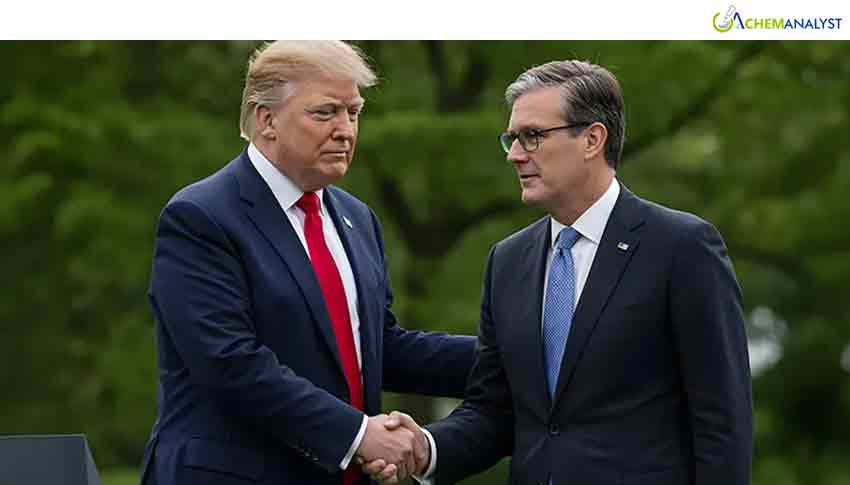Welcome To ChemAnalyst

A significant UK-US trade deal was formally signed today at the G7 summit, with US President Donald Trump declaring it "done" alongside UK Prime Minister Sir Keir Starmer.
The agreement primarily finalizes tariff reductions for the automotive and aerospace sectors, marking a crucial step in strengthening economic ties between the two nations. However, a resolution on tariffs for British steel exports to the US remains pending.
Meeting at the picturesque G7 summit in Kananaskis, Alberta, President Trump and Prime Minister Starmer presented a united front, confirming the implementation of key aspects of their trade agreement. President Trump, while initially making a brief misstatement about a deal with the European Union, quickly clarified that the agreement was specifically with Britain. He hailed the pact as a "fair deal for both," anticipating significant job creation and economic growth. Sir Keir Starmer echoed this sentiment, describing the completed deal, which "implements on car tariffs and aerospace," as an "important" agreement and a "sign of strength" between Britain and America.
Under the terms of the agreement, which builds upon a broader framework established last month, the US will significantly reduce tariffs on British automobiles. British carmakers will now benefit from an annual quota of 100,000 cars that can be exported to the US at a 10% tariff rate, a substantial decrease from the 25% rates currently faced by other countries. Furthermore, tariffs on the UK aerospace sector, including parts and aircraft, have been entirely eliminated. This aspect of the deal is expected to provide a considerable boost to British companies in these vital industries. The UK, in turn, has agreed to lower tariffs on specific American exports, including beef and ethanol, with mutual access for 13,000 metric tons of beef annually, subject to UK food safety standards.
Despite the breakthroughs in the automotive and aerospace sectors, the issue of tariffs on British steel exports continues to be a point of contention. When pressed by reporters on the matter, President Trump indicated that information on steel tariffs would be provided "in a little while," suggesting ongoing discussions. While Britain has managed to avoid the escalated 50% steel tariffs imposed on other nations, its steel exports to the US currently face a 25% levy, a reprieve from higher rates until at least July 9. The White House has stated that the US intends to impose a quota on steel and aluminium imports from the UK that would be exempt from these 25% tariffs. However, this exemption is conditional upon Britain demonstrating the security of its steel supply chains and production facilities. US Commerce Secretary Howard Lutnick will be responsible for determining the specific quota level.
We use cookies to deliver the best possible experience on our website. To learn more, visit our Privacy Policy. By continuing to use this site or by closing this box, you consent to our use of cookies. More info.
